Today’s Current Affairs: 13th Jul 2023 for UPSC IAS exams, State PSC exams, SSC CGL, State SSC, RRB, Railways, Banking Exam & IBPS, etc
Table of Contents
Osteo HRNet : AI-Based Framework
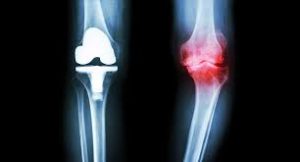
Researchers from the Indian Institute of Technology (IIT) Guwahati have developed an AI-based framework called Osteo HRNet.
- This framework aims to revolutionize the assessment of Knee Osteoarthritis (OA) severity through the automatic analysis of X-ray images.
- The Osteo HRNet framework developed by the researchers at IIT Guwahati utilizes deep learning techniques to assess the severity of Knee OA.
- It incorporates the Kellgren and Lawrence (KL) grading scale, a widely accepted standard for classifying the disease severity.
- The framework harnesses the power of the High-Resolution Network (HRNet) to capture multi-scale features of knee X-rays, enhancing the accuracy of the analysis.
- The Osteo HRNet framework is poised to bring about significant advancements in diagnosing Knee OA.
- By automatically assessing the severity level of the disease, medical practitioners can make more informed decisions remotely, leading to more accurate diagnoses and tailored treatment plans.
- The framework’s ability to pinpoint the medically crucial areas further enhances its utility.
Eunuchs Act : Telangana
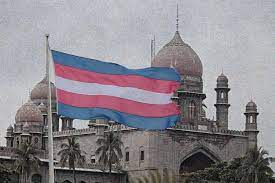
The Telangana High Court recently made a significant ruling ,striking down the Telangana Eunuchs Act of 1919.
- The court found the Act to be unconstitutional, infringing upon the rights of transgender individuals and undermining their equality, privacy, and dignity.
- Specifically, the Act was found to contravene Article 14, which guarantees the right to equality, and Article 21, which protects the right to privacy and dignity.
- By imposing mandatory registration requirements on eunuchs and imposing restrictive measures on their attire and activities, the Act impinged upon their fundamental rights.
- Originally known as the Andhra Pradesh (Telangana Area) Eunuchs Act, the legislation was enacted in 1919 within the Hyderabad Nizam’s dominions.
- It primarily targeted individuals defined as “eunuchs,” encompassing those who self-identified as impotent or displayed impotence on medical inspection.
- The Act compelled eunuchs to register with authorities and provided provisions for their monitoring.
E-auction Of Rice : Food Cooperation Of India
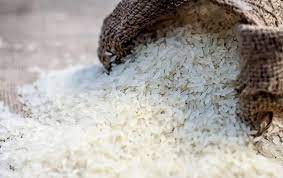
The Food Cooperation of India (FCI) started an e-auction of rice to control retail prices.
- Consumer Affairs, Food and Public Distribution Ministry have said that the decision to sell rice through e-auction under the Open Market Sale Scheme (OMSS) from the buffer stock to bulk consumers has been taken in the public interest.
- Open Market Scheme refers to the selling of food grains by the Government at predetermined prices in the open market from time to time.
- Objective is to enhance the supply of grains, especially during the lean season and thereby to moderate the general open market prices, especially in the deficit regions.
- Ministry: Ministry of Consumer Affairs, Food and Public Distribution.
- Under the OMSS, the FCI from time to time sells surplus food grains from the central pool, especially wheat and rice in the open market to traders, bulk consumers, retail chains, etc., at predetermined prices.
- The FCI does this through e-auctions where open market bidders can buy specified quantities.
- The FCI conducts this weekly auction using NCDEX (National Commodity and Derivatives Exchange Limited).
- NCDEX: a commodity exchange platform in India that provides a platform for trading in various agricultural and other commodities.
- The State Governments/ Union Territory Administrations are also allowed to participate in the e-auction if they require wheat and rice outside Targeted Public Distribution System (TPDS )
Standard Operating Procedure : CBIC
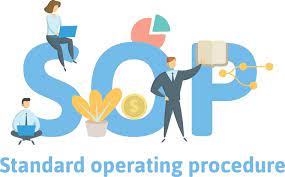
The Central Board of Indirect Taxes and Customs (CBIC) has issued a standard operating procedure (SoP) to prevent the use of freebies, illicit liquor, and other prohibited items to lure voters during upcoming elections in India.
- SoP is a set of guidelines and instructions that define how a particular task or process should be carried out. SoPs are created to ensure consistency, efficiency, and compliance with established protocols
- The SoP aims to ensure fair and transparent elections by preventing the flow of suspicious cash, illicit liquor, drugs/narcotics, freebies and smuggled goods during assembly and general elections.
- In line with the directions of the Election Commission, CBIC has instructed its field officials to monitor both monetary and non-monetary inducements used during the election process.
- The officials will establish surveillance teams, conduct checks on vehicles and warehouses, and apprehend smuggled goods. Setting up flying squads and static surveillance teams for vehicles check and verification of warehouses.
- Movement of items like saris, party flags etc. associated with candidates or political parties without an e-way bill may be confiscated.
- The tax officers will report their activities to the Election Commission on a daily basis.
CBIC:
- It is a government body under the Ministry of Finance in India.
- It is responsible for formulating policies related to customs, excise duties, GST, and narcotics.
34th International Biology Olympiad : India Tops

India topped the medals tally at the 34th International Biology Olympiad (IBO) 2023 which was held in Al Ain, UAE, from July 3 to 11.
- International Biology Olympiad is a biological Olympiad for pre-university students under the age 20, and is one of the most well-known International Science Olympiads.
- The first IBO was held in Czechoslovakia in 1990, and it has since been held annually.
- India organized this Olympiad in 2008
- The competition has gradually expanded to include more than 75 participating countries across five continents.
- All participating countries send the four winners of their National Biology Olympiad to the IBO, usually accompanied by two adults who are members of the international jury, for the duration of the competition.
- To select these top four life science contestants for this international competition, all member countries host Biology Olympiad competitions in typically 3-5 consecutively more difficult national competition rounds.
- As a consequence, this leads to a trickle-down effect, engaging more than 1 million students worldwide in life science each year.
- Every year it is being organised by a different country.
Global Multidimensional Poverty Index:
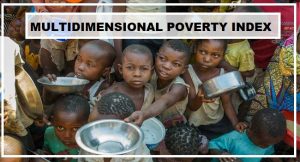
The Global Multidimensional Poverty Index (MPI) report highlighted that a total of 415 million people moved out of poverty in India within just 15 years from 2005/2006 to 2019/2021.
- It said that 25 countries, including India, successfully halved their global MPI values within 15 years, showing that rapid progress is attainable.
- The report noted that deprivation in all indicators declined in India.
- The poorest States and groups, including children and people in disadvantaged caste groups, had the fastest absolute progress.
- In India those people who are multidimensionally poor and deprived under the nutrition indicator have declined.
- Children under the age of 18 account for half of MPI-poor people (566 million).
- The poverty rate among children is 27.7%, while among adults, it is 13.4%.
- Countries halved their MPI in periods as short as four to 12 years.
Global Multidimensional Poverty Index:
- It was developed by the United Nations Development Programme (UNDP) and the Oxford Poverty and Human Development Initiative (OPHI).
Phosphine : At Deeper Level In Venus
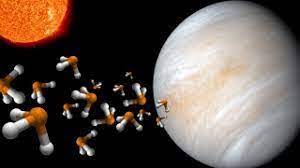
Scientists have detected phosphine at deeper level in Venus’ atmosphere than before using the James Clark Maxwell Telescope (JCMT) at Mauna Kea Observatory, Hawaii.
- Phosphine on Earth is developed naturally by bacteria that live in very low-oxygen environments.
- To produce phosphine, Earth bacteria take up phosphate from minerals or biological material and add hydrogen.
- It is also called as hydrogen phosphide.
- It is a colourless, flammable, extremely toxic gas with a disagreeable garlic like odour.
- It is formed by the action of a strong base or hot water on white phosphorus or by the reaction of water with calcium phosphide (Ca3P2).
- It is structurally similar to ammonia(NH3), but phosphine is a much poorer solvent than ammonia and is much less soluble in water.
- Phosphine is used in semiconductor and plastics industries, in the production of a flame retardant, and as a pesticide in stored grain.
European Sky Shield Initiative:
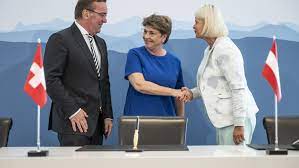
Austria and Switzerland, traditionally neutral countries, have joined the ‘European Sky Shield Initiative’ (ESSI) for air defence in response to Russia’s attack on Ukraine.
- The European Sky Shield Initiative (ESSI) is a regional grouping of European countries aimed at developing a common air and missile defence system.
- It focuses on acquiring air defence equipment and missiles collectively to strengthen NATO’s Integrated Air and Missile Defense (IAMD)
- The ESSI now has 19 member states, with the goal of leveraging existing NATO cooperation frameworks for defence.
- It was spearheaded by Germany in 2022.
SAMARTH Scheme : New Implementing Partners
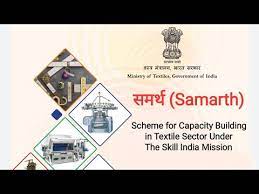
The panel of SAMARTH scheme implementing partners has been broadened with empanelment of 43 new implementing partners and additional target of training around 75,000 beneficiaries has been allocated to the training partners.
- The Funding pattern has been revised with an increment of 5% in cost norms, which will give much needed additional financial support to industries imparting skill under this Scheme.
SAMARTH scheme:
- Scheme for Capacity Building in Textiles Sector (SAMARTH) is a demand-driven and placement-oriented umbrella skilling programme.
- It aims to incentivize and supplement the efforts of the industry in creating jobs in the organized textile and related sectors, covering the entire value chain of textiles, excluding Spinning and Weaving.
- In addition to the entry-level skilling, a special provision for upskilling/ re-skilling programme has also been operationalized under the scheme towards improving the productivity of the existing workers in the Apparel & Garmenting segments.
- The implementation period of the scheme is up to March 2024.
- Nodal Ministry: Ministry of Textiles.




